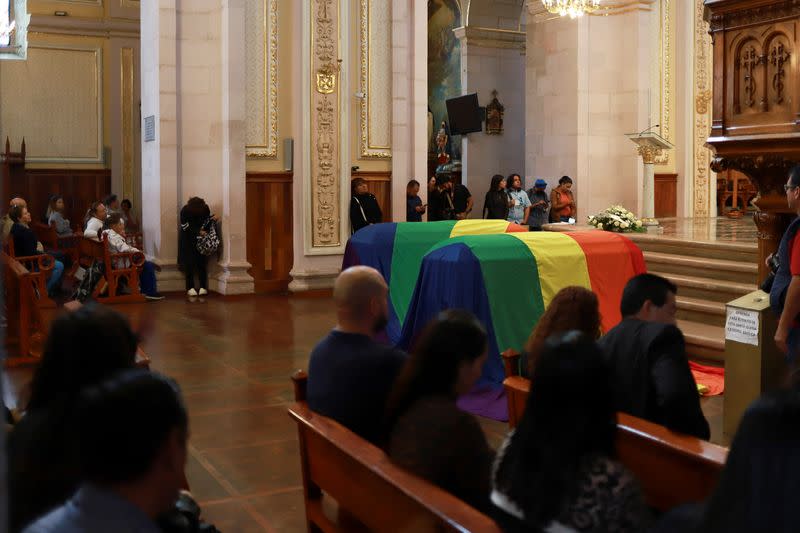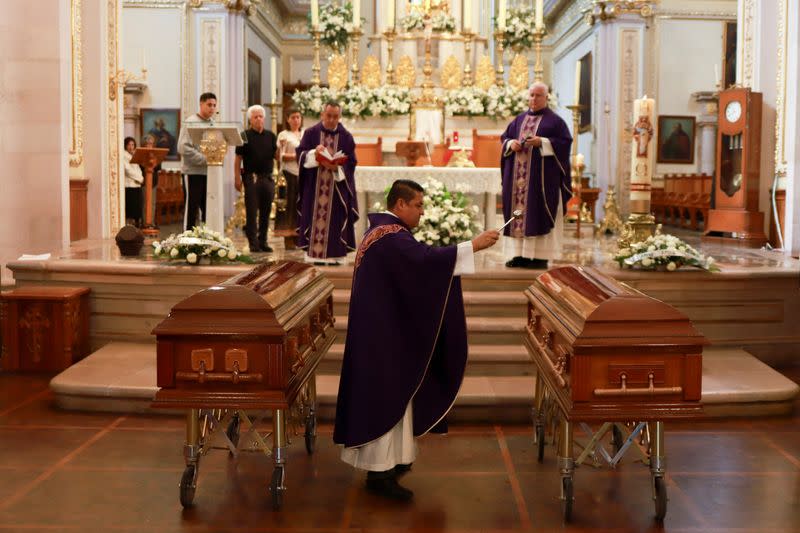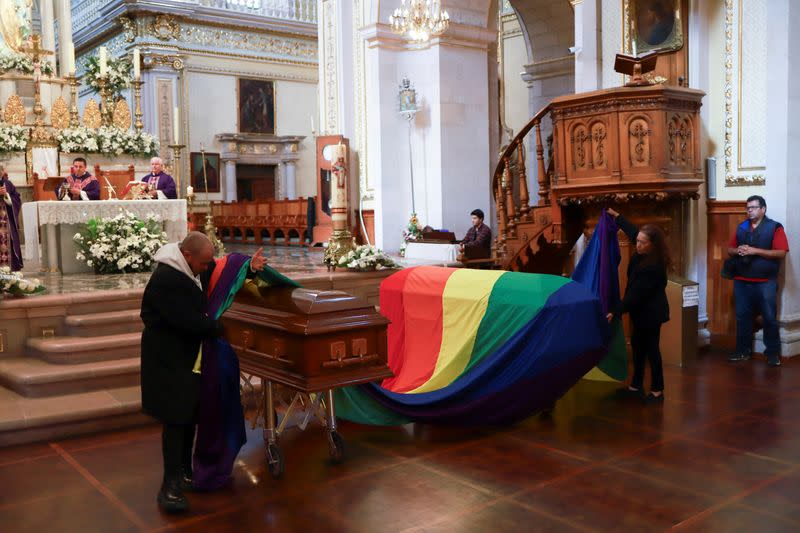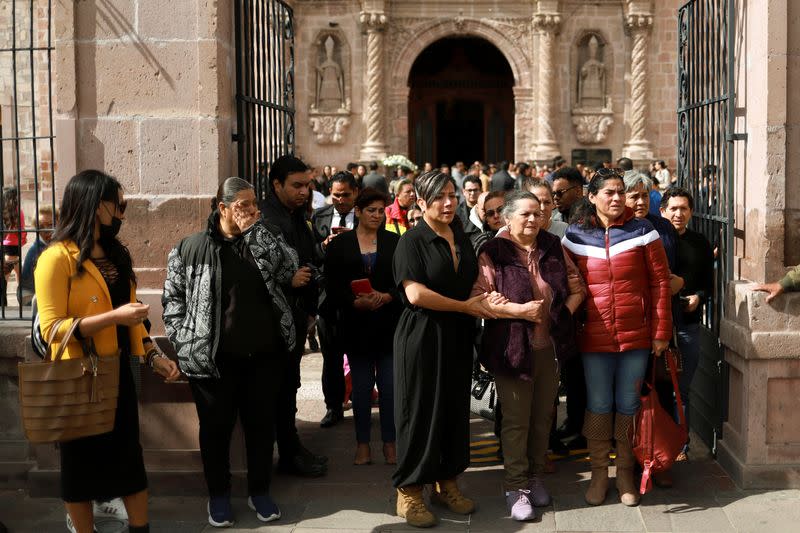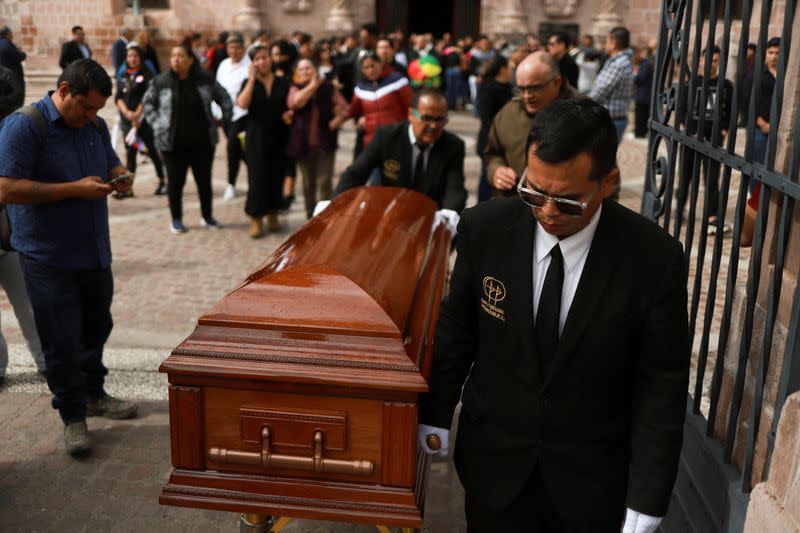Prominent non-binary Mexican activist killed with blade, says prosecutor
By David Alire Garcia
MEXICO CITY (Reuters) -Prominent non-binary Mexican activist Ociel Baena was slain with a razor blade, a local prosecutor said on Tuesday, in a suspected murder that has led to an outpouring of grief from members of the country's LGBT community.
Candlelight vigils took place in multiple cities on Monday evening, including in the capital, where many shed tears and speakers lashed out at the insults and acts of violence that remain a common occurrence for many gay, transgender and non-binary Mexicans.
Some participants waved rainbow fans, which Baena often brought to public events, including one last year where Mexico's foreign minister unveiled the country's first non-binary passport.
Baena and partner Dorian Nieves were found dead in the early hours of Monday morning at their home in central Aguascalientes state.
Aguascalientes chief prosecutor Jesus Figueroa told Radio Formula that Baena was found with 20 lacerations from a shaving razor, including one to the neck that was likely fatal.
Figueroa said the investigation was ongoing but that so far video footage and fingerprints at the crime scene did not indicate the involvement of a third person.
Some forensic evidence suggested Nieves may have committed the murder and then died by suicide, he added.
But before their funeral on Tuesday in Aguascalientes, Baena's father rejected the prosecutor's theory.
"It's not true," said an emotional Juan Baena, near the pair of coffins, both draped with rainbow flags.
"Hopefully this will echo. These struggles, these movements, aren't won overnight ... I love you my darling."
Rights organizations called on authorities to investigate whether Baena's gender identity or activism played a role in the suspected murder.
"The authorities should make sure that the investigation is exhaustive and leaves no stone unturned," said Cristian Gonzalez, LGBT rights researcher with Human Rights Watch.
Aguascalientes is one of Mexico's more socially conservative bastions, known for its colonial-era history and traditional festivals.
Since last year, Baena had served as a state elections judge, believed to be the first non-binary person to hold the position.
Juan Pablo Delgado, head of local human rights group Amicus, highlighted Baena's "transcendent" leadership and constant presence at public marches.
"This is someone who generated so much empathy, affection internationally," he said.
(Reporting by David Alire Garcia; Additional reporting by Laura Gottesdiener and Rocio Lopez; Editing by Rosalba O'Brien and Deepa Babington)

